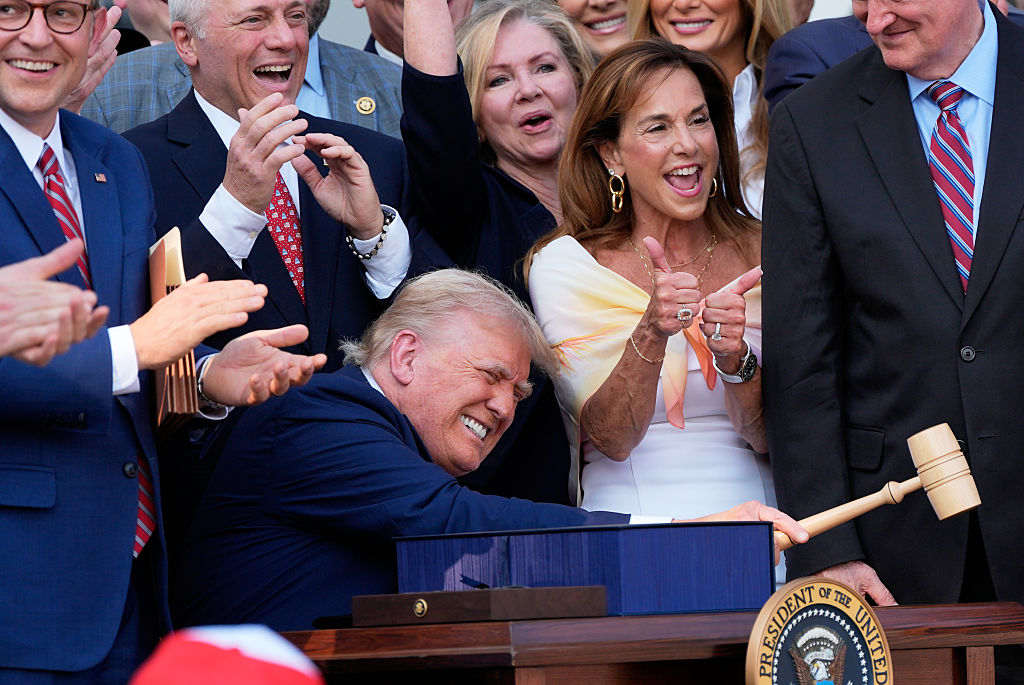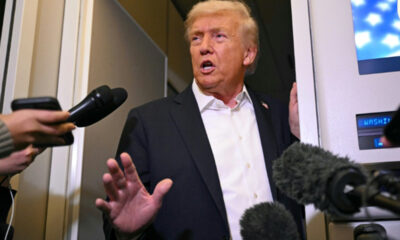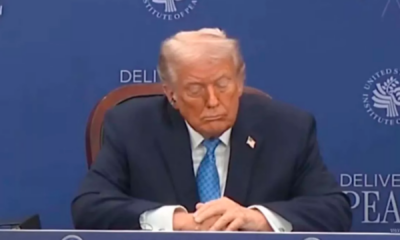Business
Trump’s “One Big Beautiful Bill” Faces Economic Scrutiny

The recently passed “One Big Beautiful Bill,” championed by former President Donald Trump, has ignited significant debate regarding its potential economic impact. This omnibus legislation, which narrowly gained approval in both houses of Congress, incorporates diverse tax and spending measures. Notably, it extends the substantial tax cuts from Trump’s initial term, which were set to expire at the end of 2025, at an estimated cost of $4.6 trillion over the next decade.
In addition to the tax cuts, which include temporary breaks on tips and overtime pay until 2028, the bill proposes increased funding for defence and immigration enforcement. Conversely, it aims to reduce federal spending on social, medical programs, and clean energy initiatives by more than $1 trillion. According to the Congressional Budget Office (CBO), these changes may result in approximately 11.8 million Americans losing health insurance by 2034.
The implications of Trump’s legislation have drawn criticism from various economic analysts. The Economist characterized the bill as emblematic of “fiscal incontinence and ideological exhaustion,” suggesting it merges Reagan-era austerity with populist sentiments. Gabriel Rubin from Breakingviews echoed this sentiment, describing the bill as politically misguided, predicting that its adverse effects will soon become apparent to Trump’s core supporters.
Economic concerns are also prevalent. The bill’s retreat from clean energy and manufacturing sectors could bolster China’s competitive advantage. Ambrose Evans-Pritchard from The Telegraph highlighted that the legislation represents a significant withdrawal from crucial areas of the Sino-American economic rivalry, branding it as a “bunker-busting bomb” on the US economy. This trend, he argues, may accelerate climate change, hinder job creation, and impede advancements in artificial intelligence.
The fiscal ramifications are alarming. The CBO forecasts that the bill will add $3.4 trillion to federal deficits over ten years, compounding existing annual deficits of around $2 trillion. This has raised concerns among economists, particularly as the US dollar has already declined by 10% this year due to worries about long-term fiscal stability. Currently, the national debt hovers around $36 trillion, or 125% of GDP, drawing comparisons to Greece during the eurozone crisis.
Ray Dalio, founder of hedge fund Bridgewater Associates, indicated that the Trump legislation could elevate the national debt per American family from approximately $230,000 to $425,000. He cautioned that without corrective measures, the US could face significant disruptions.
Despite long-standing warnings from fiscal conservatives about a potential debt crisis, many analysts note that the US has so far avoided catastrophe due to the economy’s underlying strength and the global demand for US dollar-denominated assets. Nonetheless, John Cassidy of The New Yorker cautioned that this safety net may not endure indefinitely. If Trump continues to challenge the Federal Reserve and seeks to replace its leadership with more inflationary-friendly figures, the risk of a “Turkey-style outcome” could materialize, resulting in decreased market confidence and severe economic consequences.
The situation is critical. Goldman Sachs estimates that postponed fiscal tightening could necessitate spending cuts or tax increases equivalent to 5.5% of GDP annually to stabilize the debt-to-GDP ratio. Kenneth Rogoff of the Financial Times suggested that Trump’s supporters may be banking on a return to historically low real interest rates to mitigate these challenges. However, he questioned whether such a gamble is prudent for a nation aspiring to maintain its global hegemony.
The ramifications of the bill, particularly in light of rising interest rates, could lead to an increasingly burdensome debt service cost, with significant budgetary implications. Gerard Baker from The Times warned that the US might eventually confront a bond-market backlash or fiscal crisis, reminiscent of the challenges faced by former UK Prime Minister Liz Truss.
While a coordinated economic strategy could potentially justify the rising debt, there appears to be no such plan in place. As the US reduces taxes in hopes of spurring industry, China continues to invest heavily in advanced manufacturing and critical infrastructure. As Kyla Scanlon from The Free Press noted, this deficit expansion without a clear purpose poses a high-risk gamble, with future generations likely bearing the financial burden.
As the consequences of the “One Big Beautiful Bill” unfold, the debate surrounding its viability and impact on the US economy is sure to continue.
-

 World1 day ago
World1 day agoCoronation Street’s Shocking Murder Twist Reveals Family Secrets
-

 Entertainment4 months ago
Entertainment4 months agoKate Garraway Sells £2 Million Home Amid Financial Struggles
-

 Entertainment3 months ago
Entertainment3 months agoAnn Ming Reflects on ITV’s ‘I Fought the Law’ Drama
-

 Health3 months ago
Health3 months agoKatie Price Faces New Health Concerns After Cancer Symptoms Resurface
-

 Entertainment3 weeks ago
Entertainment3 weeks agoCoronation Street Fans React as Todd Faces Heartbreaking Choice
-

 World3 weeks ago
World3 weeks agoBailey Announces Heartbreaking Split from Rebecca After Reunion
-

 World4 days ago
World4 days agoKevin Sinfield Exceeds Fundraising Goal Ahead of Final Marathons
-

 Entertainment3 months ago
Entertainment3 months agoCoronation Street’s Carl Webster Faces Trouble with New Affairs
-

 Entertainment4 days ago
Entertainment4 days agoTwo Stars Evicted from I’m A Celebrity Just Days Before Finale
-

 Entertainment3 months ago
Entertainment3 months agoWhere is Tinder Swindler Simon Leviev? Latest Updates Revealed
-

 Entertainment4 months ago
Entertainment4 months agoMarkiplier Addresses AI Controversy During Livestream Response
-

 Science2 months ago
Science2 months agoBrian Cox Addresses Claims of Alien Probe in 3I/ATLAS Discovery





















